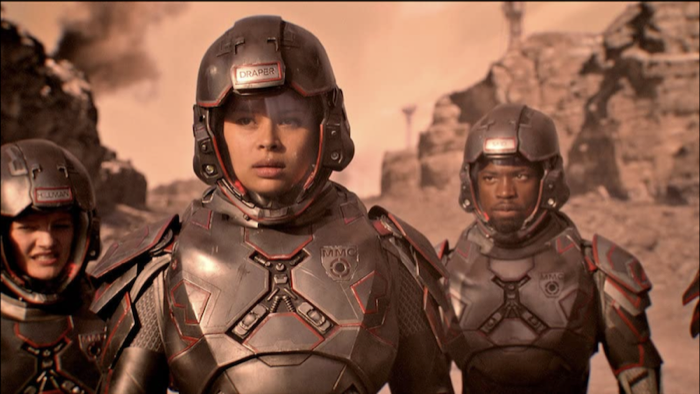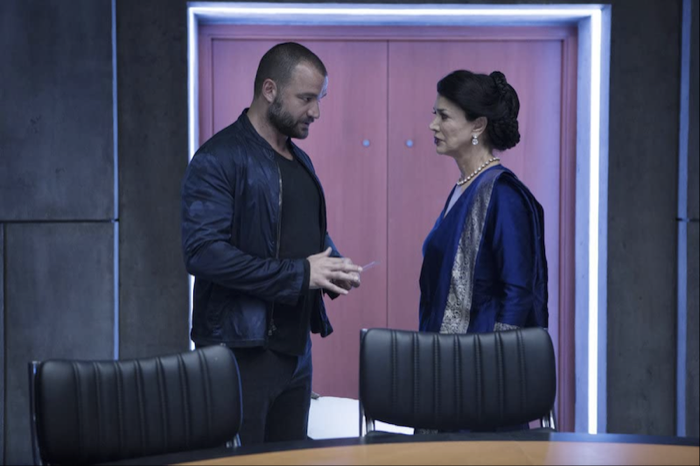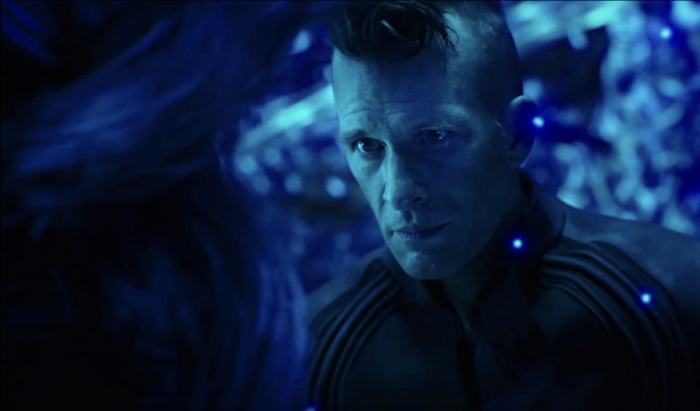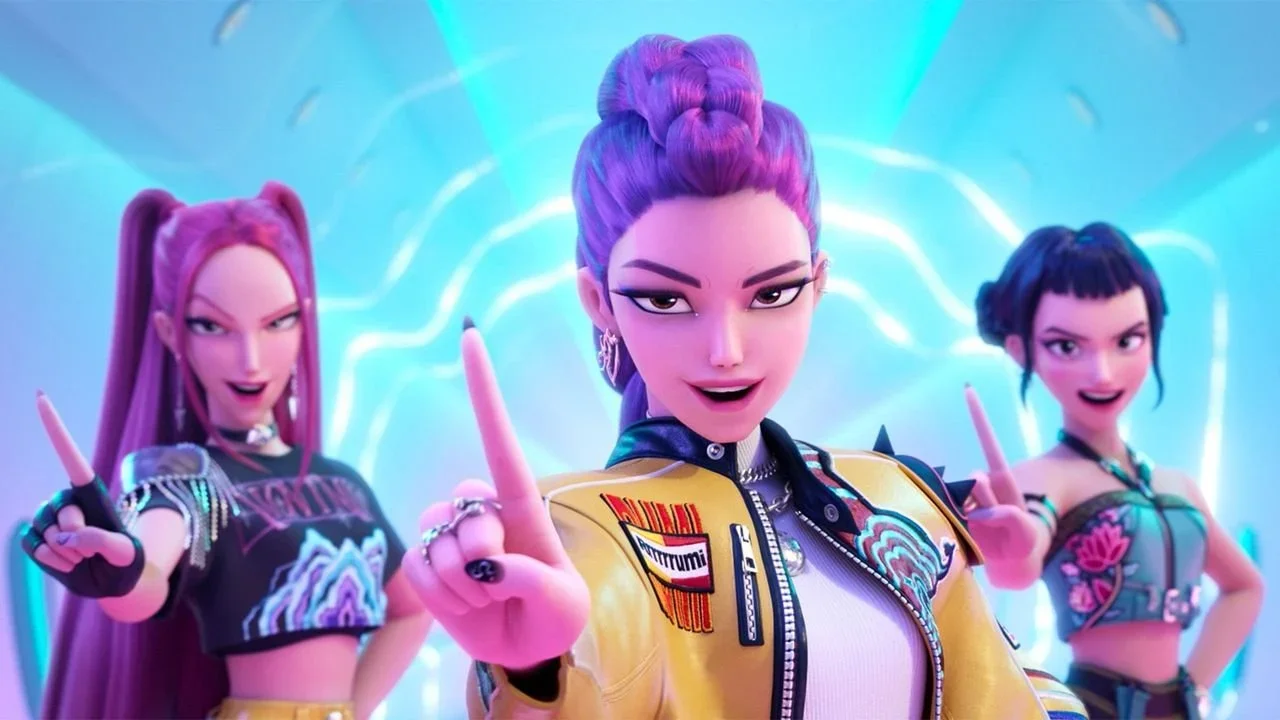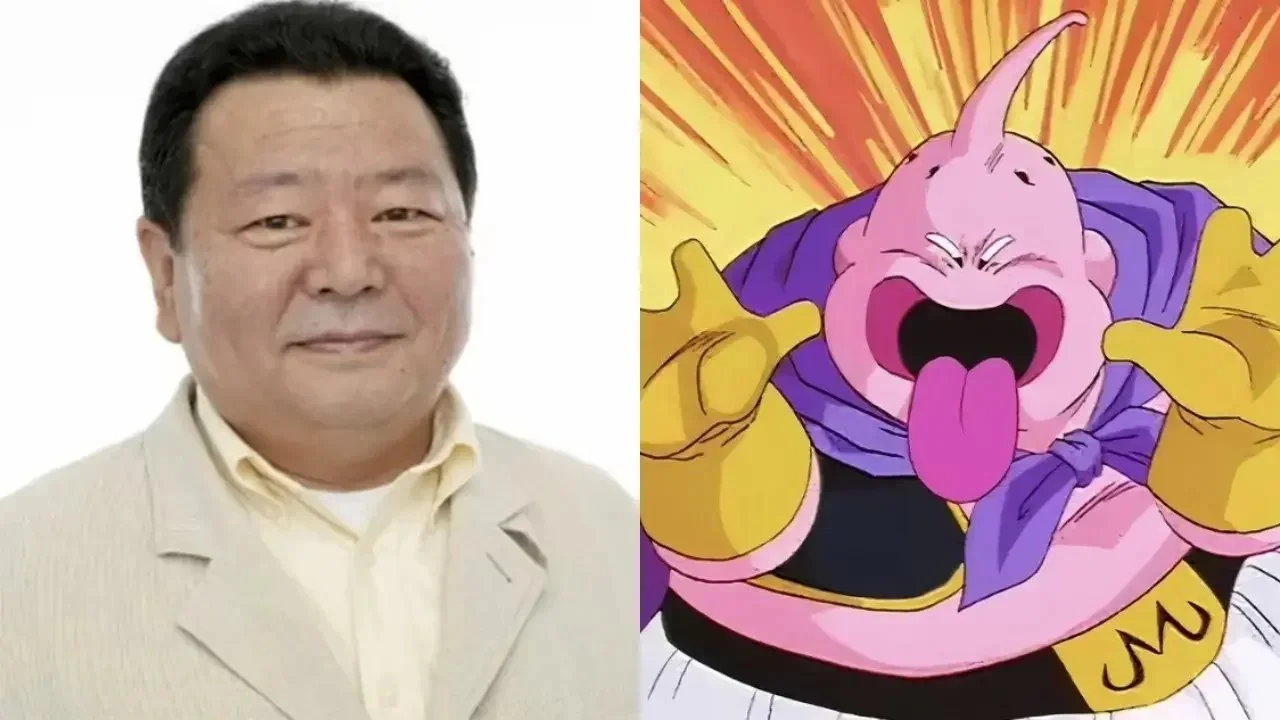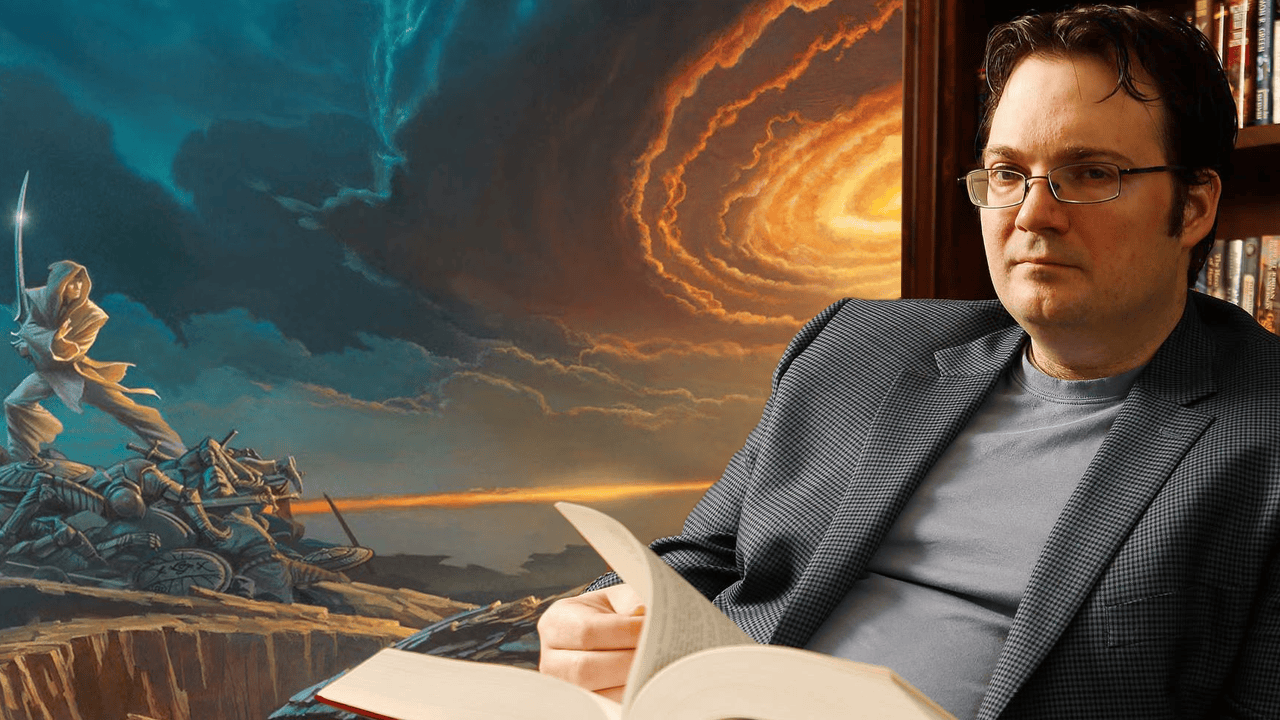'The Expanse': Season Two Review
Image Source: The Expanse Lives
With a season under its belt, The Expanse expands its roster of actors and the story into one of the best seasons of the series. It continues its odd adaptation pacing, starting in the middle of the events of book one, Leviathan Wakes, and ending in the middle of book two, Caliban’s War. Season two ups everything from season one. We learn more about the Protomolecule, the system politics grow deeper and more dangerous, and the war alluded to in the first episode comes to fruition and advanced underdog Mars takes on the old giant Earth, and everyone else is caught in the middle.
The season opens with Holden and Miller living with the consequences of their discovery on Eros, physically and mentally. Mars and Earth react to the crisis on Eros in typical human fashion, with more aggression and lack of communication. It leads to a further breakdown of relations and ultimately opens hostilities over Ganymede, and the violence is not limited to military types. The scientists and Belters on the surface, just there to make a living and grow food in deep space, become the latest victims in the struggle between the powerful. Meanwhile, the number of parties interested in obtaining the Protomolecule for their own designs grows with the escalating conflict, and those who try to do something about it end up accelerating the alien technology’s own designs, leaving humanity to watch from the stars as the Protomolecule gets to work on the inhospitable atmosphere of Venus.
RELATED:
The human tank that is Roberta “Bobbie” Draper (Frankie Adams).
Image Source: IMDb
It's clear the budget for season two was higher with an expansion of the roster. We’re also finally introduced to some of the best characters in the show, Bobbie Draper (Frankie Adams), a badass, hardcore Martian marine. Later in the first episode, we meet Cotyar (Nick E. Tarabay), Avasarala’s personal spy-turned-bodyguard, after she survives an assassination attempt and suspects internal danger from the U.N. Halfway through the season another great character joins the cast, and the crew of the Rocinante, Praxidike Meng, a botanist refugee caught up in the chaos of the power struggle between the powers to be, but just wants to find his daughter. Further additions include an expansion of the political roster as well, and Sadavir Errinwright’s (Shawn Doyle) time on screen grows with his role in the scheme, along with his accomplice and the architect of the system’s troubles, Jules-Pierre Mao (Francois Chau), Julie Mao’s father. The elusive Secretary General of the U.N. (Jonathan Whittaker), merely referenced in the first season, finally appears and is clearly inept as his undersecretaries run the show. It’s a vastly larger roster, and every role is played fantastically well.
The unconventional structure and adaptation pace works in the show’s favor. Daniel Abraham and Ty Franck’s world-building is deep and complex, and with modern shows running about ten episodes for hour-long episodes, that’s a short amount of time to squeeze in everything in one season that one book does in 600 pages. Starting season two halfway through book one allows them to stretch their legs and really sell the environment the characters are living through. A great example is the storyline of the Protomolecule. It took most of season one to learn about its existence and see how dangerous it was. Now, it’s out there, and humans have to deal with it, and they do a great job of using the season to explore humans reacting to and living with the threat of an alien technology that, as Holden says in season three, “…doesn’t care about us, anymore than we care about ant hills we pave over.”
A Protomolecule Hybrid meets the power of the sun.
Image Source: IMDb
By pacing the show this way, it also allows the political drama to play out nicely. It’s really something to watch humanity continue to bumble through crises and slowly come to grips with the fact that they are no longer alone in the universe, and yet continue to be just as destructive and ignorant as ever. It instils somewhat a sense of hope to see the writers imagine a world where humanity somehow survives into an advanced future despite its bumbling nature, that perhaps we make it out of the current existential crises we currently face. With that background, the different structure builds the tension steadily toward what would normally be a climax and feels like one, but when it resolves, the threat remains, leaving you with the feeling that they’re out of the frying pan and now in the fire.
With the threat of the Protomolecule revealed, the show can and does, do a better job of taking a magnifying glass to the characters, both new and established. Holden and Naomi explore their budding relationships, but their different cultural backgrounds test the foundations of their moral convictions but really flesh out their characters and their relationship. Arguably the series’ best character, Amos Burton, really comes into his own throughout the season. His arc is treated beautifully, and Wes Chatham was cast perfectly for the role. The strength of his character comes from the dichotomy of Amos coming off at first glance as the typical muscle while simultaneously being the proverbial onion metaphor from Shrek. It’s an arc that lasts a good length of the series and is by far one of my favorite.
Avasarala and Cotyar try to navigate the increasingly dangerous political situation.
Image Source: IMDb
Avasarala’s and Bobbie’s story are another set that shine. Shohreh Agdashloo was a perfect cast for the sailor-mouthed politician, and to watch her hardline, steel-hearted “Earth must come first” persona unravel as she realizes this is bigger than just Earth. It’s also one of the major deviations from the books, where Avasarala is not frequently featured. In the show, she’s one of the primary characters, used to help develop the political world-building that helps keep the show interesting and dramatic beyond just space battles and shootouts. It’s easy for people to dismiss politicians because of their job, but the show really humanizes her through her relationship with Bobbie Draper and Cotyar, her hired personal spy. Their (her and Cotyar) only real link is her deceased son, both feeling responsible for his death and using each other as a means to understand it and make penance. Her relationship with Bobbie is one of the best in the series, symbolic in the demonstration that Earth and Mars can get along, and that perhaps adversaries can trust each other more than people within their government. Frankie Adams plays the part of the Martian marine, whose entire life has been a dusty veined Martian only to have that world shattered, with absolute talent. She’s truly one of the best parts of the show.
Miller (Thomas Jane) finally finds his place with Julie Mao (Florence Faivre).
Image Source: IMDb
Thomas Jane as Joe Miller gets the send-off the character deserves. It’s a little disappointing to lose him, for now (more on that in season three), because he’s just so interesting. He goes from this good-for-nothing, dirty cop that Anderson Dawes correctly labels the “joke of the station” to finding his purpose and his found family, only to give it all up to save a planet he hates. It’s tragic and awesome at the same time.
Despite these glowing reviews of the cast, there is one cast member that sort of gets left by the wayside. Cas Anvar’s Alex Kamal is the most underserved character in the season, and perhaps the show, which is disappointing because his backstory would have been a great one to examine further. Established in season one, he’s a former Martian Navy cargo pilot, and he’s got a wife and kid back on Mars, he’s instead out in the big black piloting ships. He muses on this with Amos at a bar in season one, telling him every time he found himself planetside he wound up wishing he was back up in space. It’s such an essential part of his character but it goes relatively unexplored during this season (and much of the rest of the series) that it’s one of the only disappointments in the season.
The Solar System is big. Millions and millions of miles between celestial bodies, where humans and their massive ships pale in comparison to the sheer size of it all. With a setting like that, it’s a common trope of the genre to spend a lot of time on the big battles and spectacle, but this show upends that to make its stories relatable and grounded. It does a great job of taking these grand schemes and plots and showing how they affect individuals, and what those individuals will do to survive and stand up for what they believe in. Season two does this particularly well, building off of season one’s success to further explore the people of this universe struggling to keep not only themselves alive, but all of humanity.
Rating: 9/10
READ NEXT:
Source(s): Prime Video



